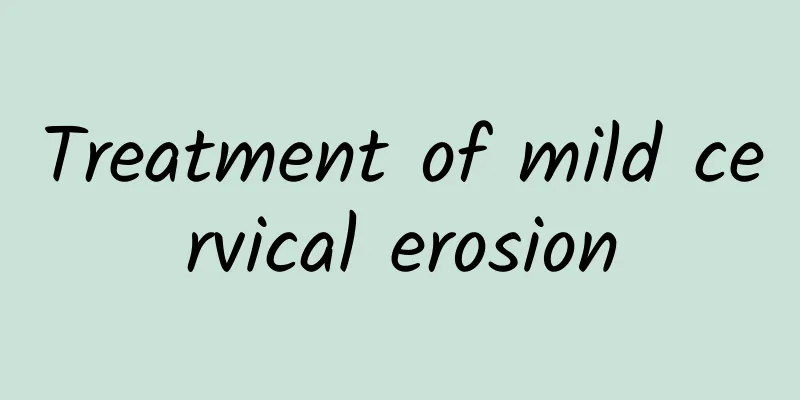Treatment of Hepatitis C

|
Hepatitis C is a relatively serious liver disease. As we all know, the liver is an important detoxification organ in our body. Many toxins in the body must be excreted through the liver. As a result, there are many types of liver diseases, which are very harmful to the human body. The most common one is hepatitis C, which can easily cause cirrhosis. Let’s take a look at the treatment methods of hepatitis C. Hepatitis C, abbreviated as hepatitis C or HCV, is a viral hepatitis caused by infection with the hepatitis C virus (HCV). It is mainly transmitted through blood transfusion, acupuncture, drug abuse, etc. According to statistics from the World Health Organization, the global HCV infection rate is about 3%. It is estimated that about 180 million people are infected with HCV, and there are about 35,000 new cases of hepatitis C each year. Hepatitis C is a global epidemic that can lead to chronic inflammation, necrosis and fibrosis of the liver. Some patients may develop cirrhosis or even hepatocellular carcinoma (HCC). The mortality rate associated with HCV infection (death due to liver failure and hepatocellular carcinoma) will continue to increase in the next 20 years, posing a great threat to the health and life of patients and has become a serious social and public health problem. Treatment of patients with hepatitis C virus infection (1) Acute hepatitis C: There is clear evidence that interferon treatment can reduce the chronicity rate of acute hepatitis C. It can be started 8-12 weeks after the onset of acute hepatitis caused by HCV infection, and the course of treatment is 12-24 weeks. The optimal treatment regimen has not yet been definitively determined, but early treatment is more effective for patients with genotype 1 and high viral load (>800,000 logIU/ml). (2) For patients with chronic hepatitis C, the severity of liver disease should be assessed before treatment. Patients with recurrent abnormal liver function or obvious inflammatory necrosis (G≥2) or moderate or severe fibrosis (S≥2) in liver biopsy are more likely to progress to cirrhosis and should be given antiviral treatment. (3) Hepatitis C cirrhosis ① For patients with compensated cirrhosis (Child-Pugh A grade), although their tolerance and efficacy to treatment are reduced, it is recommended that they be given antiviral treatment under close observation in order to stabilize their condition and delay or prevent the occurrence of complications such as liver failure and HCC. ② Patients with decompensated cirrhosis: Most of them find it difficult to tolerate the adverse reactions of IFNα treatment, and those who are able should undergo liver transplantation. Hepatitis C is an infectious disease. The main transmission routes are sexual transmission, mother-to-child transmission and blood transmission. As long as the source of infection is eliminated at the source, you will stay away from the hepatitis C virus. At the same time, pay attention to personal hygiene and actively get vaccinated against hepatitis C. If you find that you have hepatitis C, you should receive treatment in time. If it develops into cirrhosis, the difficulty of treatment will increase. |
<<: Interferon treatment for hepatitis C
>>: Treatment of habitual patellar dislocation
Recommend
Can women eat some fruits after miscarriage?
We often say that eating more fruits is very good...
How long can a person with hyperthyroidism live?
How long can a person with hyperthyroidism live? ...
At how many weeks will the fetal movement decrease?
Many women experience different things during pre...
Is morning urine necessary for pregnancy testing?
Pregnancy test refers to a method of testing when...
The efficacy of soaking stink bug in wine
The biggest benefit of soaking stink bugs in wine...
This is how you develop a good stomach. Who can you blame for stomach discomfort?
Modern people are under great work pressure every...
Treatment of sciatica
In fact, you may not know that diseases are somet...
How long does it take to do thread carving for the second time?
In order to make the facial lines more three-dime...
How long does it take for Maca to take effect?
Generally speaking, if you want to see the effect...
What are the effects and functions of snake aconite
Snake aconite is also called three-leaf green, st...
What happens if a bulla ruptures?
We know that bullae are caused by air accumulatio...
How to enlarge breasts during menstruation, secret recipes for breast enlargement during menstruation revealed
Many female friends will find that their breasts ...
What to eat to nourish the liver and detoxify
The liver must get enough rest, as it is a very i...
Is lumbar traction better or acupuncture better?
The lumbar vertebrae play a connecting role in ou...
What should I do if I have a stomachache due to heat stroke?
In the hot summer, the temperature is very high. ...









